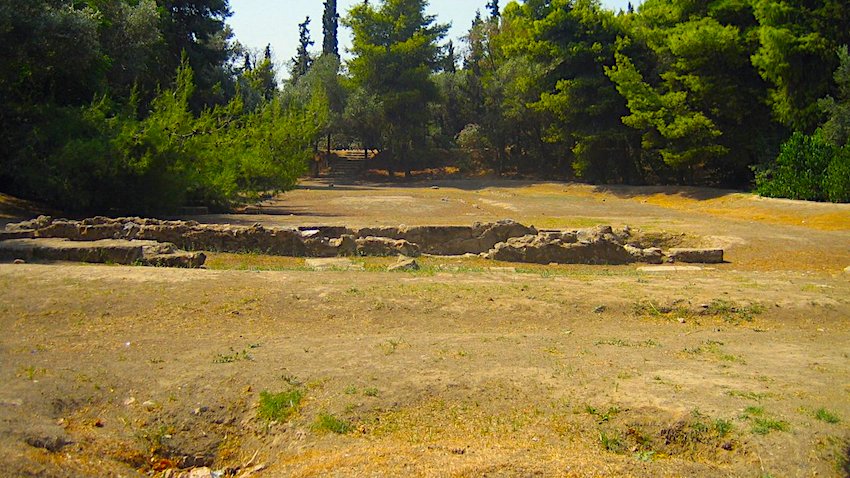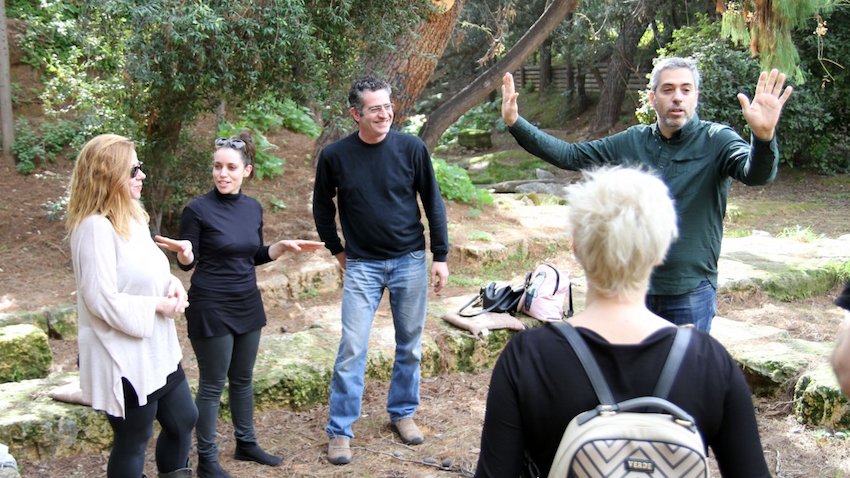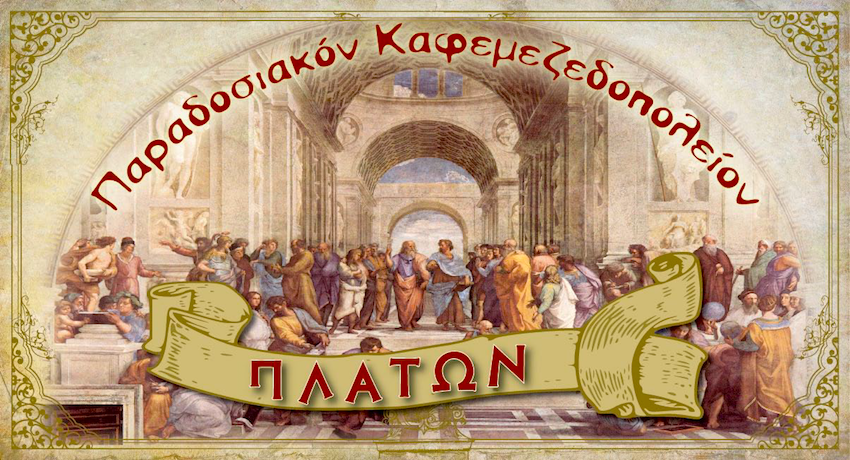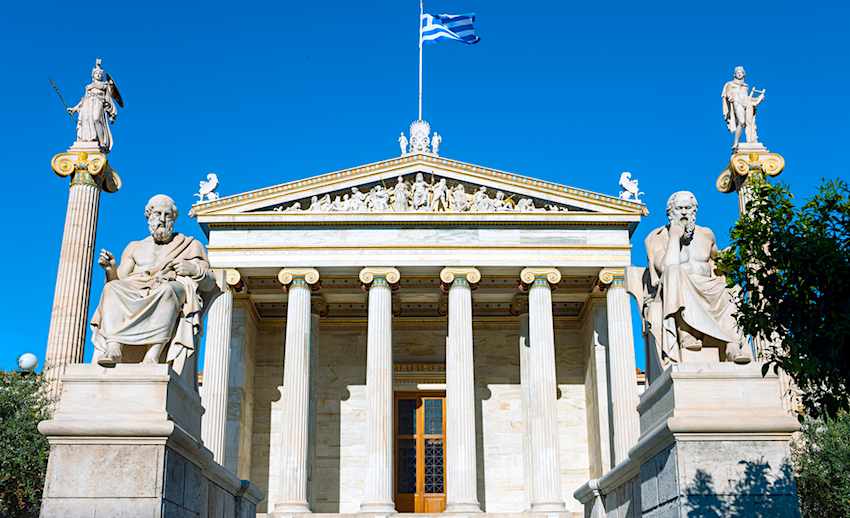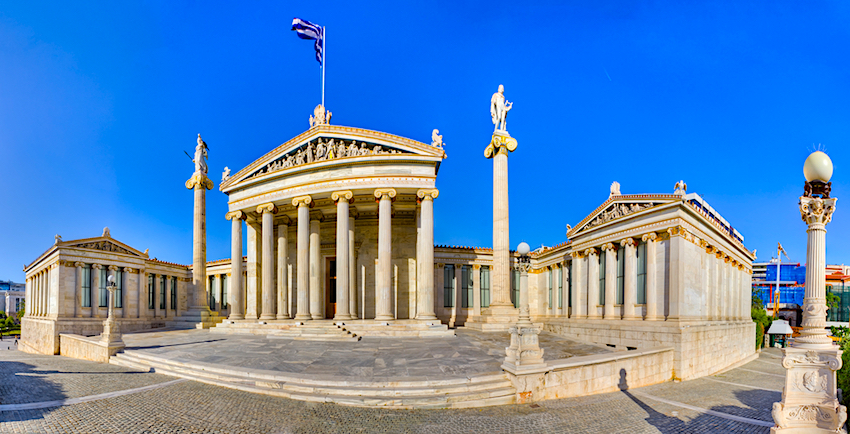
Plato's Academy
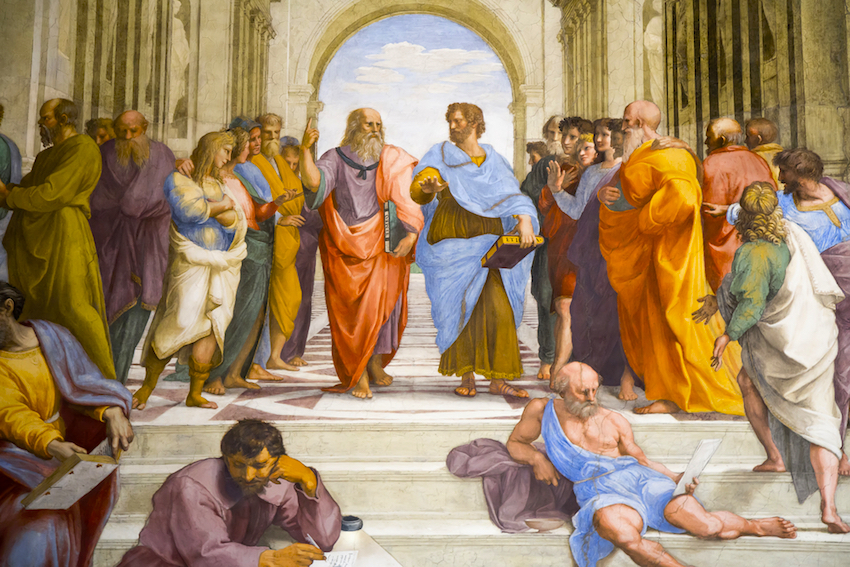
| Though there is not much to look at if you are coming to see ancient ruins, a visit to the park and neighborhood of Akadimia Platonos, which means Plato's Academy, is an important stop for students of philosophy and anyone who has wondered about the question "Why are we here?" |
|
Introduction The Academy Park is a big plot of land located in the Kolonus neighborhood of Athens. It was here the great philosopher, Plato, decided to build one of the most famous universities (we can even say the first university) of the ancient world, the Academy of Plato. It is said that the name of the area (and the school) comes from an ancient Athenian hero, Ecademus or Academus. Others say that it comes from the etymology of the word, meaning ‘’a municipality far from the city center’’. The Academy Park, is a gorgeous contrast from the modern Athenian urban environment. It is a place anyone can visit at any time of the day with free entrance, and during the morning days it is sprawling with families doing activities, like playing soccer, picnics etc. But of course, it is not just the natural beauty of the park that attracts visitors. |
|
|
|
The Park The Park can be divided into three main sectors, based on the ancient Greek ruins within it: 1) The Sacred House Sector: North of Drakontos Street (Οδός Δράκοντος) lies the “sacred house”, the ruins of a building dating all the way back to Geometric Period (circa 800 B.C.E.). A traveler can also find the ruins of prehistoric building, dating around 2500 B.C.E. These houses are a testament of the scarce urbanization of the area before the construction of the Gymnasium. 2) The Gymnasium Sector: The ruins of the Gymnasium were excavated within the second sector of the park. Visitors can see some parts of the rectangle gymnasium court. North of the court is a cistern, built as a bathroom for the ancient athletes. The gymnasium sector houses the ruins of Plato’s Academy. 3) The Peristylium Sector: In this small sector, visitors come across a small 40m by 40m (131 by 131 feet) square cloister. The use of this is unclear. It is however speculated that this square was the original fighting ring of the gymnasium. |
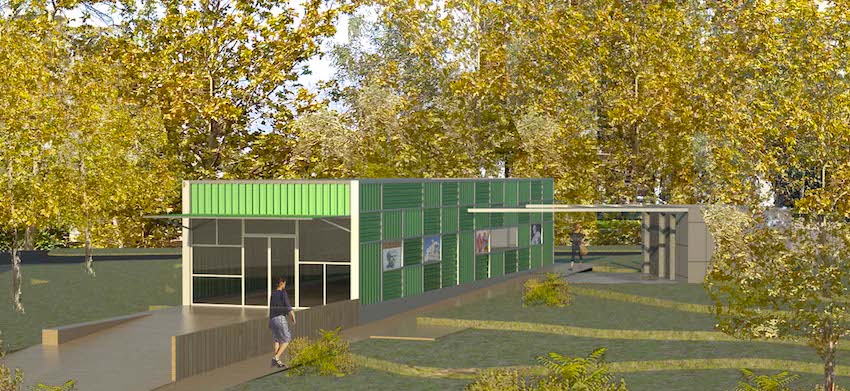 |
|
The Museum On the borders of the first sector, on Monastiriou street, lies a small modern and minimalistic building, the Plato’s Academy Digital Museum. A visit here enables you to experience the life of the great philosopher with fun and interactive lessons, through the touch – screens of the museum. The entrance is free, and the museum is open from 09:00AM to 16:00PM, except for Mondays. |
|
|
|
Hellas Revival Classes Becoming a Student of Plato: On weekends Hellas Revival offers an interactive alternative philosophy workshop for beginners, featuring dialogues and debates. Led by a facilitator with a background in Classical Studies, this experience will allow you to put yourself in the shoes of an ancient Greek philosopher and apply Plato's Philosophy in modern life, through exploration of his famous ''Allegory of the Cave''. See our classes |
|
|
|
What to eat in the neighborhood? After walking through the park, visiting the ruins, and checking the museum, a visitor might like to find a nice place to sit down and enjoy the local cuisine. While Kolonos is a densely residential area, there are some cozy restaurants around the park: 1) Platon Kafemezedopoleion: Triploeos 61. Open from 8.30AM to 11.00PM. local cuisine, alcohol, coffee, close to the park (check their Facebook Page for live music) On Tilefanous Street there are several small cafes and restaurants in a nice pedestrian area where they also have events. And in the end… If you ever decide to visit Athens, it is strongly suggested to visit the academy park. Admittedly, it is in a part of Athens that is not considered a tourist spot. However, the people of Colonus were the ones who grouped up in 2012 to turn the park into what it is today. And within this green place in the Greek metropolis, you will come across people from every aspect of Athenian life. |
|
|
|
Philosophy in Ancient Athens The word ‘’philosophy’’ comes from the greek words ‘’philo’’ and ‘’sophia’’ and it means ‘’love for wisdom, wisdom pursuit’’. Philosophy is an activity for our souls and minds, a way to keep both vivid and alive. It helps us navigate our perception of life and people, find satisfaction, live morally, and think out of the box. We philosophize every time we search for the truth beyond what is known, beyond what is seen, beyond the established perception, using the power of logic. However philosophy is not something you get over a book, it is something you do. Ancient Greek philosophy set the basis of Western thinking by offering a way to think and question human and nature activities. During the Athenian Golden Age (5th century B.C.), philosophy reached its pick via a common quest between teachers and students, within Schools but also in public places where citizens could freely participate. In a time where democracy flourished, all Athenian citizens had the right to talk during the Assembly (ancient greek: ekklesia) and also the obligation to vote about all city-state matters. Philosophers’ role was the one of questioning the status quo while searching the right path to a noble life, keeping this way the citizens’ critical thought busy working towards the public and personal wellness. Therefore the ancient Greek philosophers had to develop themselves and also teach others exceptional thinking and argument skills. To achieve this, they introduced an innovative teaching method; via productive dialogue. Through it, each party was discovering the truth on his own potential and will. Under the watchful and critical eye of the public opinion, philosophers had additionally to prove that their teachings were feasible and were actually leading to a noble life, by implementing their theories into their own everyday living. Their students did the same. In ancient Athens when a man chooses to follow the teachings of a philosopher he chooses not only a way to think and talk, but also a way to live or like Socrates, lose his life. |
|
|
|
Plato and the Academy Plato began his philosophical quest being a student of Socrates who introduced him to teaching through dialogue. As Socrates did not write any books himself, Plato was the one who wrote down, further developed and widely spread this technique through his school, his students and his books. Therefore Plato is considered to be the founder of the dialogue teaching technique, which is still considered to be one of the most productive and democratic teaching methods. Plato founded his School at 327 b.C., inside an idyllic grove right outside the city center named Hekademia, nearby one of the city’s Gymnasiums (place for training). Many philosophers used to gather there at that time, so that they spread their teachings and theories amongst the youngsters. Students of the Platonic Academy would first train their bodies and minds via sports and martial arts, mathematics, astronomy, physics, politics and music. Only if one had succeeded in all the above was considered to be ready to attend the philosophy and dialectic sessions. Soon the foundation took the name Academia, and became the most famous philosophical school of the ancient world. Plato lived and taught there for 40 years, however the Platonic Academy continued to function via his successors ''Scholars'', for 400 years, producing a series of scientists and philosophers such as Aristotle, Xenocratis, Carneadis, and Cicero. The very word Academia has since been used as the definition of a higher education school. |
|
|
|
Getting to Academias Platonas The easiest way to get here is to take a taxi because most likely you are not staying anywhere near. You can also take the 051 Bus from Metaxourgeio, on Achileos Street or from Omonia Square on Agios Konstantinos Street at the National Theater. If you are walking use Google maps to get you there. It will take around half an hour from Psiri and Matt has done it several times. The most pleasant way is to go down Platanos Street or Kimonas from Konstantinopoleos Avenue but without a map you will probably get lost and a taxi there from anywhere downtown should not cost more than 5-7 euros. |
|
Text by Olga Perdikouri |
Help Support Matt's Greece Guides
Do you enjoy using my site? Have you found it entertaining as well as useful? If so please show your appreciation by booking hotels through the travel agencies and the links found on my Hotels of Greece site. The small commission I make on the bookings enable me to keep working and in most cases you won't find them any cheaper by searching elsewhere.
You can find
hotels in Greece by location, price, whether or not it has a swimming pool, and see photos and reviews by using this link to booking.com which also contributes to my website when you book. If you are appreciative of all the free information you get on my websites you can also send
a donation through Paypal or Venmo
Join Matt Barrett's Greece Travel Guides Group on Facebook for comments, photos and other fun stuff. If you enjoy this website please share it with your friends on Facebook and other social media.
